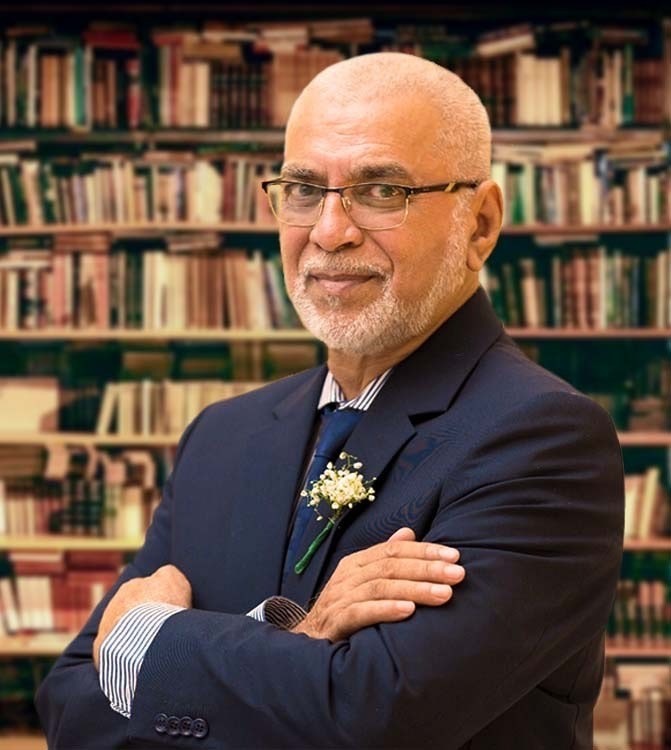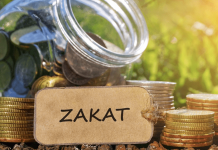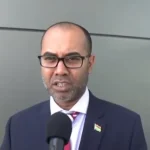The International Day of Peace is observed around the world each year on the 21st September – a day devoted to commemorating and strengthening the ideals of peace, both within and among all nations and peoples. This year’s theme is ‘End Racism. Build Peace’. Racism in undoubtedly among one of the most important factors that cause hindrance to maintaining peace.
Racism has no religion. Racism is a heinous crime against humanity that Islam has consistently condemned. Islam encourages all people to coexist in harmony with the unique message of mutual harmony and friendship, regardless of their differences.
Racism is an unspoken conflict among people of different skin colours – usually between whites and people of colour. The sound of conflict could still be heard from time to time. At times, it appears that racist wars have exceeded the horrors of all previous wars in the world. Many people have died as a result of racism throughout history. This dirty game of racism has been going on for centuries.
World War I has ended. World War II has also ended. Nobody knows when the war of racism and the apartheid war will end. Nobody knows if it will ever end.
The world has evolved into a modern era. People have emerged from the primitive, barbaric life of the dark cave. Modern people have created society, civilization, city, and now Silicon Valleys. But have people truly evolved into civilized beings? Is racism on the decline? Have the violence, fighting, and bloodshed over racism ended?
It is worthy to note that there is no place for racism in Islam. Islam has laid a unique foundation for the peaceful coexistence of people of colours; where black and white, rich and poor, citizens and rulers, kings and subjects have equal status. The Quran and the words of the last Prophet of Islam, Muhammad (saw), forbid racism. The existence of difference people of different casts, nations and languages have been highlighted as one of the creations and signs of the Almighty God.
God says in the Holy Quran:
‘O mankind! Surely, We have created you from a male and a female and made you into nations and tribes that you may know one another. Indeed, the most honorable in the sight of Allah is the most pious. Surely Allah is Knowing, Aware. (49: 13)
Furthermore, on the occasion of the Farewell Pilgrimage, the Prophet said:
“O people, be aware: your God is One. No Arab has any superiority over a non-Arab, and no non-Arab any superiority over an Arab, and no white one has any superiority over a black one, and no black one any superiority over a white one, except on the basis of piety. The most honorable among you in the sight of Allah is he who is the most pious and righteous.”
Therefore, it is obvious that Islam does NOT categorize people, based on skin colour but on actions, character, and piety. The pilgrimage in Islam – the Hajj – is a vivid example of this human brotherhood – one humanity. Millions of pilgrims, from all over the world, from all colours, from blue-eyed blondes to black-skinned Africans, from all nations, all participating in the same ritual, displaying a spirit of human unity and brotherhood.
In recent years, racism has spread beyond racial inequality and into racial groups, countries, classes, religions, and into all spheres of society. Many anti-racism movements have been active in many countries around the world.
There is no solution or effective formula to eliminate racism inequality, in any man-made provision or policy; Islam has proposed an efficient solution and effective formula as I mentioned above, i.e to categorize people on the basis of Piety, righteousness, universal core values, rather than on skin colour.
In this badly bruised world by racism and hate speech the Council of Religions, which is the largest alliance of religious institutions, Religious Leaders, and communities has a rich history that dates to 2001, in advancing common goals for Peace.
Besides, all law-abiding citizens are yearning for peace and seeking by all means to contribute in their own ways to help make this world a more harmonious place. Violence worldwide has been routinely committed in the name of religion down the centuries and that religions have often been used for supporting political or economic interests.
Hence, I firmly believe that universal core values, i.e. ‘Secular Ethics’ beyond religions, can do wonders. ‘Secular ethics’, which would be based on values that do not contradict any religion. Being rooted in our common humanity may enable this secular ethics to gain greater cross-cultural and cross-religious acceptance and thus serve as an acceptable basis for relationships between diverse communities.
In this regard, we should all consider listening to “our fundamental human spirituality” from within, no matter what religion we belong to, which can be defined as the affinity we humans have, for love, benevolence, empathy and affection that are the basis of human coexistence.
Considering that humanity is all one big family, we are still focusing far too much on our differences than on our commonalities. Whether we want to or not, we must live together. Living together as brothers and sisters is the only way to peace, compassion, mindfulness, and more justice.
Nevertheless, the process of working for global peace must start with the individual. In this regard, educating young people for peace is a basic component to global peace-building. Educational systems should educate not only the brain but also the heart. They should place greater emphasis on strengthening human abilities such as warm-heartedness, the sense of oneness of humanity and love.
Along with the inner transformation that is essential for us to become peace-loving individuals. We should devise strategies for Nation and Peace-building at a broader level. These include promoting dialogue as means of conflict resolution, which rules out racism, hate speech and wars, as ways to deal with differences. In this respect, CoR is already offering Nation and Peace-building courses and a Diplomat course on Peace and Interfaith Studies at the UoM, for 5 years now.
Bashir Nuckchady
The Secretary
Council of Religions
NOTE : Les points de vue exprimés dans cette rubrique ne reflètent pas nécessairement ceux de la rédaction et n’engagent que les auteurs eux-mêmes.




![[Message de l’Eid-Ul-Fitr 2024] Atteindre la piété… Et après ???](https://sundaytimesmauritius.com/wp-content/uploads/2023/10/Bashir-new-218x150.jpg)


![[Democracy Watch Mauritius] The Rwanda genocide started 7th April 1994, 30 years ago. Has humankind learnt the lesson? Consider Israel’s action in GAZA today!](https://sundaytimesmauritius.com/wp-content/uploads/2024/03/democracy_0-218x150.jpg)







